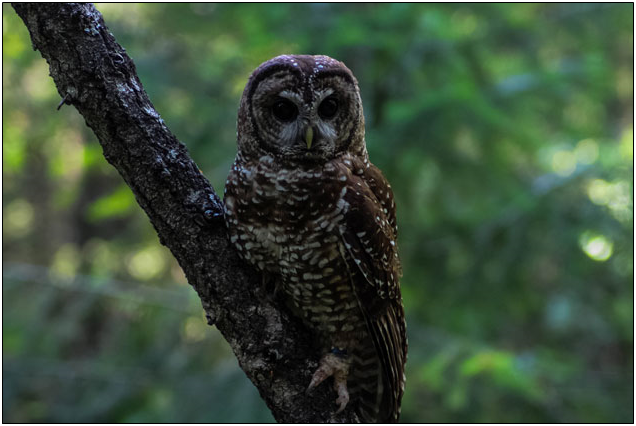By Rick Manning
Adapted from testimony given before the House Western Caucus.
The Endangered Species Act has been stretched beyond recognition into little more than a property grab while little progress is made on species restoration.
I personally have been following the need to reform the Endangered Species Act for more than twenty years and unfortunately, many of the concerns heard back before the turn of the century have become a reality today.
I want to make one quick point on the on-going disaster that is the Northern Spotted Owl failed recovery plan, and then close my remarks with what I find to be one of the most incredible attempts to create legal liability in the United States that I have ever witnessed.
The Northern Spotted Owl has been on the threatened list for almost thirty years now, and the barred owl continues to invade its habitat posing the greatest threat to the bird’s survival.
Yet, the anti-timber harvesting environmental left continue to demand that massive acreage, including private land, be added to the current sizeable amount of land dedicated to the Northern Spotted Owl’s recovery in spite of the proven failure of this habitat based plan.
Let’s be clear. The management plan for recovering the Northern Spotted Owl is not working. Fewer Northern Spotted Owls exist in the new habitat created for them than before.
Let’s also be clear. The Northern Spotted Owl forest management plan is essentially a non-management plan, and it is doing grievous harm to all wildlife that depends upon the forest as well as the forested areas themselves.
Last year’s catastrophic fires in northern California and southern Oregon were the most predictable disasters in history. In fact, Steve Brink, the Vice President of Public Resources for the California Forestry Association ominously predicted these exact types of expanded, uncontrollable fires in testimony before the House Resources Committee in 2013 when he said: “The result of increasing tree density is an increasing trend in the number, size, and intensity of wildfires on California’s National Forests. The continuation of only accomplishing removal of 7 percent of annual growth will mean we will continue to see the increasing trends continue. Wildfire behavior today is like nothing that has ever been experienced in California before.”
Brink went on to warn, “every time there is a species-specific habitat designation put in-place, the tendency is to stop forest health and fuels reduction projects. In the case of the Spotted Owl, the reduction in activity is to promote increased canopy cover and other characteristics for species, which then leads to an ever-increasing tree density on California’s National Forests. The result is increases in number, size, and intensity of wildfires that destroy the forest, the integrity of the watershed, and the wildlife habitat that is trying to be promoted. Today (remember this testimony was given in six years ago), one-third of all wildfire burned acres on California National Forests are high intensity stand-replacing fire; and the trend continues to increase.”
Bottom line, if you want hotter, more intense wildfires, do exactly what the Northern Spotted Owl management plan demands. To the environmentalists — the disastrous 2018 Mendocino, Camp and Carr fires which ravaged northern California last year, killing tens of thousands of wild animals, destroying more than half a million acres while killing almost 100 people weren’t the results of global warming, climate change or anything else you want to call it, they were the direct result of your failed prohibitions on proper forest management.
All this damage and in terms of the Northern Spotted Owl, the plan has failed. It is time to return to sound forest management along with creating a wildlife management plan to aggressively reduce the numbers of the barred owls in these western forests.
I’d like to turn briefly to a just filed lawsuit against the U.S. Fish and Wildlife Service from the Center for Biodiversity demanding that the Emperor Penguin be listed as an endangered species under the law. While popularized in culture by Hollywood, no penguin is naturally found in the entire northern hemisphere, and the legal push by the left on this issue is clearly nothing but an attempt to create U.S. liability for what happens on the expanding Antarctic ice cap.
Congress should dictate that no species shall be listed which is not indigenous to the United States. While this seems simple and obvious, given the current state of the Courts, it would be unwise to leave this point up to a random federal judge with their nationwide injunctive powers.
Rick Manning is the President of Americans for Limited Government.







